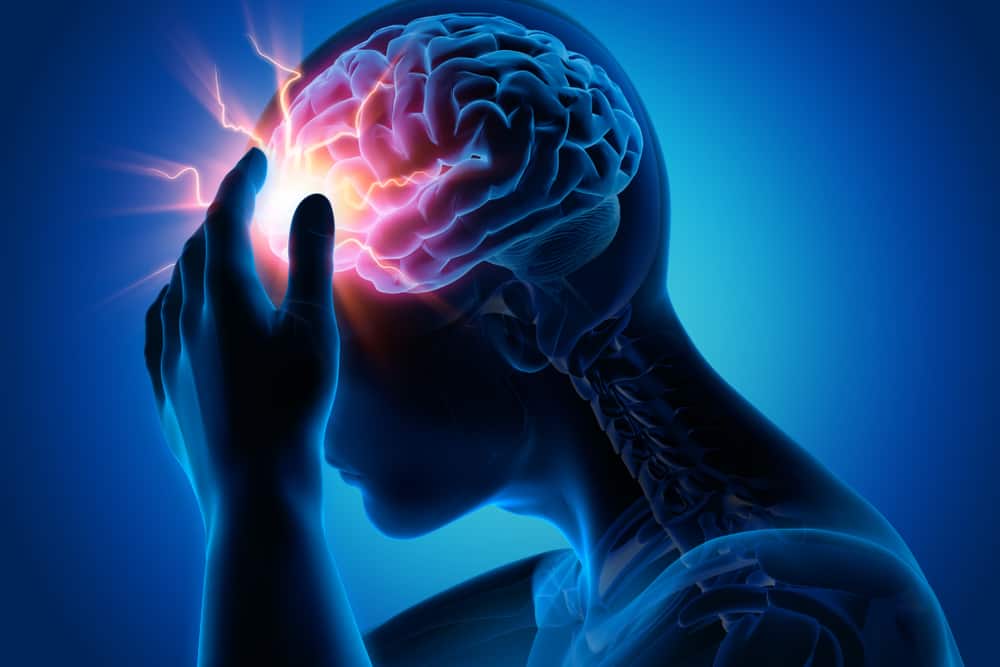
Headache Treatment
Dealing with a headache can be a minor annoyance or end up ruining your whole day. Many different types of headaches can affect you. It is important to understand what type of headaches you are dealing with, so you know your options for finding lasting pain relief. In addition to causing you pain, headaches can also cause other uncomfortable symptoms. Our team of chiropractors at Affordable Chiropractic Killeen can provide you with quality treatment for headaches.
Types of Headaches
You may be surprised to learn that there are over 15o types of headaches! Here are some of the most common types of headaches that can affect you, including what other symptoms they can cause and how long they typically last:

Cervicogenic Headaches
Cervicogenic headaches are typically caused by an issue in your neck. Whether you are dealing with a recent neck injury or poor posture from hunching over your desk all day, neck issues can cause cervicogenic headaches. The most common signs and symptoms of a cervicogenic headache include a steady pain on one side of your head that lasts for hours or even days. Cervicogenic headaches may be accompanied by a stiff neck or reduced range of motion in your neck. Pain with a cervicogenic headache typically stays in one place along your head and can also cause uncomfortable symptoms like nausea, vomiting, or blurry vision.
Chronic Headaches
Chronic headaches refer to headaches that last for more than 15 days out of the month and for longer than 3 months at a time. These headaches may last for a short period of time each day, anywhere from minutes to hours. Chronic, daily headaches can negatively impact your quality of life by keeping you from participating in school, work, and the activities you enjoy. Chronic headaches can occur anywhere in the head and can affect one or both sides of your head at a time. While occasional headaches are common, if you are experiencing headaches more than twice a week and these headaches are disabling, then you will want to see a doctor.
Cluster Headaches
Cluster headaches are short bursts of very painful headaches that last for a period of weeks or months. People typically experience cluster headaches at the same time every year, like in the spring or fall, which can make them easy to confuse with sinus headaches. However, cluster headaches involve nerves in your head that cause severe pain around your eyes. When this nerve is triggered, it causes cluster headaches that come on suddenly and only last for a short period of time. Some people refer to cluster headaches as ‘alarm clock headaches’ because they tend to occur at the same time of day. Cluster headaches can cause swelling or drooping around the eyes, smaller pupils, and eye redness or watering eyes.
Hormone Headaches
When your hormone levels shift or change, it can lead to headaches. Hormone headaches are common among women during menstruation, pregnancy, and menopause. Hormone changes due to certain medications like birth control pills can also trigger hormone headaches. Hormone headaches are most common in the days leading up to a woman’s menstrual cycle each month and can also trigger what are known as menstrual migraines. Pregnancy can also cause hormone headaches, especially during the first trimester when estrogen levels are increasing quickly. In addition to head pain, hormone headaches can also cause nausea, vomiting, and sensitivity to light and sound.
Migraine Headaches
Migraine headaches start slowly and can last for hours or even days at a time. Migraines typically have warning signs in the leadup to this type of headache attack, like craving for certain foods or mood changes. Migraine headaches cause a throbbing pain that usually gets worse with movement. In addition to head pain, migraines also cause symptoms like nausea and vomiting and sensitivity to light and sound. Migraines happen in stages with different symptoms depending on what stage you are in. If you experience migraines, then you understand how debilitating an attack can be. Migraine headaches can occur due to a variety of triggers, but it can seem like these kinds of headaches occur without warning.
Occipital Neuralgia
Occipital neuralgia is a condition that causes headache pain and other uncomfortable symptoms. While sometimes confused with migraines or other types of headaches, occipital neuralgia causes a sharp, stabbing head pain. The nerves that run along the top of the spinal cord and into the scalp are known as the occipital nerves. When these nerves are inflamed or injured, you can experience significant pain along the base of your skull or back of your head. This can lead to a sharp, aching, or throbbing pain, sensitivity to light, scalp tenderness, and pain when you move your neck. A head injury, like a sudden blow to the back of the head, can cause occipital neuralgia.
Sinus Headaches
Sinus headaches cause pain and discomfort along your forehead, nose, and cheekbones. Your sinuses are located in these areas and can become inflamed due to allergies or infection. When the sinuses swell and generate more mucus, this can cause a buildup of pressure that triggers sinus headaches. When your sinuses are blocked, you may experience congestion, runny nose, fever, swelling in your face, and a sensation of fullness in your ears. The headache pains associated with a sinus headache may ease with allergy medications if you have seasonal allergies. However, in order to experience lasting relief, you will need to address both your allergies and the sinus headaches.
Tension Headaches
Tension headaches cause a dull pain or pressure around your forehead or along the back of your head and neck. Sometimes known as stress headaches, tension headaches can feel like something is squeezing your forehead or the back of your head. Tension headaches can last for a few hours to a few days and can become chronic. Unlike other types of headaches, tension headaches typically do not impact your vision or balance. You may also experience muscle aches and difficulty sleeping with tension headaches. This type of headache can cause irritability, mild sensitivity to loud sounds or bright lights, and difficulty focusing. Life stressors can trigger tension headaches.
What Causes a Headache?
When you are dealing with headache pain and other symptoms, you likely also want to know what is causing your discomfort. Your brain receives signals from nearby nerves, and blood vessels and muscles can also send signals that may trigger headaches. Here are four examples of why you might experience headaches:
Stress
You might be stressed about a specific event or issue in your life that starts to impact your physical health. A buildup of stress over time can also trigger various types of headaches. Issues at work, sudden changes to your routines or activities, difficulty in a relationship, and periods of uncertainty can all cause stress. When you are stressed, your body is flooded with hormones as a natural defense, and this response can trigger headaches. When you are feeling overwhelmed, stress can negatively impact your physical health as well as your mental health. Stress can cause you to tense your muscles and take shallow breaths, which can put significant strain on your body. If you notice you clench your jaw or your shoulders are tensed up near your ears and chin throughout the day, these can be physical signs of stress in your life.
Illness
Headaches can be a symptom of a wide range of illnesses. From the common cold to ear, nose, and throat infections, you may experience headaches with an illness. An illness can cause fevers, which may then trigger different types of headaches. Viruses like the common cold or the flu can also cause inflammation, swelling, and congestion. When you are experiencing congestion and a buildup of mucus, it can disrupt your sinus pathways and cause pain and discomfort. If you develop inflammation or swelling due to an illness, it can also trigger certain types of headaches.
Injury
Sports injuries, car accident injuries, and other types of physical trauma can cause headaches. A sudden blow to the head can be serious and lead to a traumatic brain injury. A concussion is a type of injury that can occur from a car accident or with certain contact sports. This type of injury can trigger headaches that can be incredibly painful. Whiplash is one of the most common car accidents and affects your head and neck. When you experience whiplash, it can cause pain, tenderness, and swelling in your neck and even trigger migraines. Head, neck, and back injuries are more likely to trigger headaches because of how they can disrupt the healthy functioning of your nervous system.
Environment
Sometimes aspects of your environment can trigger types of headaches. Strong smells and odors, like secondhand tobacco smoke, can cause headaches. Other strong smells, like household chemicals, perfumes, or foods, can also trigger headaches. Pollution, noise, and lighting can also cause headaches. Weather changes can lead to headaches when the barometric pressure in the air shifts. Pressure changes in the air, like an increase in humidity, rising temperatures, or an incoming thunderstorm, can also trigger chemical and electrical changes inside your brain. Anything that irritates the nerves in your brain can end up triggering a headache.
Treatment for Headaches
The type of headache treatment you need will depend on what type of headache you are experiencing. There are many options for headache treatment, ranging from home remedies to medications to lifestyle changes. Home remedies may include applying an ice pack to your forehead or the back of your neck or retreating to a quiet, dark room. Drinking caffeine and taking over-the-counter medications may also help alleviate some discomfort with headaches. Certain medications may also help with different types of headaches. Learning what triggers your headaches and avoiding those triggers can also help. Keeping a headache diary to track what you were doing, eating, and drinking when your headaches first start can help you identify possible triggers.
You don’t have to manage your headache pain alone! A chiropractor can provide you with quality and lasting treatment for headaches. Our team of chiropractors will determine what type of headache you are dealing with so they can recommend the most appropriate course of treatment. Headache treatment is personalized for you based on the type of headaches you are experiencing, where the pain occurs, the severity, and other symptoms you may have.
Chiropractic care is an incredibly effective method for treating and preventing all types of headaches. Chiropractors focus on the spine, which is where all the nerves are located that send signals to and from your brain and the rest of your body. When one or more of these nerves is aggravated, it can cause disruptions like headaches. While headaches take place in your head, addressing issues with the spine can help address the root cause of your pain. Realigning your spine to its neutral position can help alleviate pressure on nerves and restore the flow of healthy communication to and from your brain.
Preventing Headaches
The key to preventing headaches in the future is to identify your triggers. If your headaches are triggered by stress, then recognizing what is causing you stress and making lifestyle changes accordingly can help provide you with relief. If you work hunched over a computer or desk for long hours each day, then poor posture may be contributing to your headaches. Practicing better posture and visiting a chiropractor can help realign your spine and take the pressure off of your nerves. When you are not able to identify or avoid the triggers in your life, then your doctor can help develop a treatment approach to help you. Our team at Affordable Chiropractic Killeen can walk you through stretches, exercises, and therapeutic massage to help relieve your headache pain and help prevent future attacks. Visit Affordable Chiropractic in Killeen, Texas, to learn more about treatment options and strategies to help you with headaches!
